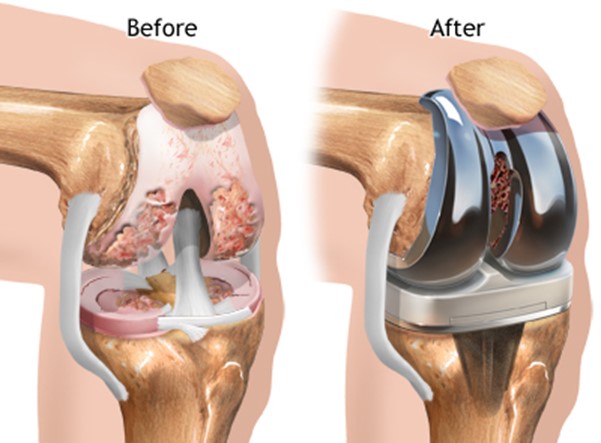A nurse is teaching a client who has celiac disease about gluten-free foods. Which of the following foods should the nurse recommend?
Tapioca
Barley
Cold cuts
Flavored chips
The Correct Answer is A
Choice A reason: Tapioca is a gluten-free food that can be recommended for a client who has celiac disease. Tapioca is a starch extracted from the cassava root, which is a tuber plant. Tapioca can be used to make puddings, breads, flours, and pearls.
Choice B reason: Barley is not a gluten-free food that can be recommended for a client who has celiac disease. Barley is a cereal grain that contains gluten, which is a protein that can trigger an immune response and damage the small intestine in people who have celiac disease. Barley should be avoided or replaced with gluten-free grains, such as rice, quinoa, or buckwheat.
Choice C reason: Cold cuts are not gluten-free foods that can be recommended for a client who has celiac disease. Cold cuts are sliced meats that are often processed and cured with additives, such as fillers, binders, and preservatives, that may contain gluten. Cold cuts should be avoided or checked for gluten-free labels before consuming.
Choice D reason: Flavored chips are not gluten-free foods that can be recommended for a client who has celiac disease. Flavored chips are snack foods that are often made from potatoes, corn, or rice, which are gluten-free ingredients, but they may also contain seasonings, spices, and sauces that may contain gluten. Flavored chips should be avoided or checked for gluten-free labels before consuming.

Nursing Test Bank
Naxlex Comprehensive Predictor Exams
Related Questions
Correct Answer is B
Explanation
Choice A reason: Applying ice packs for 15 minutes every hour is not an effective intervention for managing edema following knee replacement surgery because it can impair blood circulation and delay healing. Ice packs can also cause frostbite or nerve damage if applied for too long or too frequently. Ice packs should be used only for the first 24 to 48 hours after surgery and with a cloth barrier between the skin and the ice.
Choice B reason: Elevating the affected leg above the heart level is an effective intervention for managing edema following knee replacement surgery because it can reduce swelling and pain by facilitating venous return and lymphatic drainage. Elevation can also prevent blood clots and infection by improving blood flow and oxygen delivery to the wound site.
Choice C reason: Consuming nutrition-dense foods first is not a relevant intervention for managing edema following knee replacement surgery because it does not directly affect fluid balance or wound healing. Nutrition-dense foods are those that provide high amounts of nutrients per serving, such as eggs, cheese, nuts, beans, and meat. Nutrition-dense foods are important for overall health, but not specifically for edema management.
Choice D reason: Wearing compression stockings during the day is not a recommended intervention for managing edema following knee replacement surgery because it can interfere with wound healing and increase the risk of infection. Compression stockings can also cause skin irritation, blisters, or ulcers if worn incorrectly or too tightly. Compression stockings should be avoided until the wound is fully healed and only used under medical supervision.

Correct Answer is D
Explanation
Choice A reason: Using a washcloth to clean the denture surfaces is not a good practice for denture care because it can damage or scratch the dentures. A washcloth is too rough and abrasive for denture cleaning. A soft-bristled toothbrush or a special denture brush should be used to clean the denture surfaces gently.
Choice B reason: Wiping dentures before storing them in a dry container at night is not a good practice for denture care because it can cause warping or cracking of the dentures. Dentures should be rinsed thoroughly and soaked in water or a denture cleanser solution at night to keep them moist and prevent deformation.
Choice C reason: Flossing dentures as part of daily cleaning is not a necessary practice for denture care because it does not remove plaque or food particles effectively from the dentures. Flossing dentures can also damage or dislodge the artificial teeth or gums. Brushing and rinsing dentures are sufficient for daily cleaning.
Choice D reason: Wrapping gloved fingers with gauze to remove dentures is a good practice for denture care because it can prevent slipping or dropping of the dentures. Gauze provides friction and grip for removing dentures safely and gently. Gloves protect from contamination and infection.
Whether you are a student looking to ace your exams or a practicing nurse seeking to enhance your expertise , our nursing education contents will empower you with the confidence and competence to make a difference in the lives of patients and become a respected leader in the healthcare field.
Visit Naxlex, invest in your future and unlock endless possibilities with our unparalleled nursing education contents today
Report Wrong Answer on the Current Question
Do you disagree with the answer? If yes, what is your expected answer? Explain.
Kindly be descriptive with the issue you are facing.
